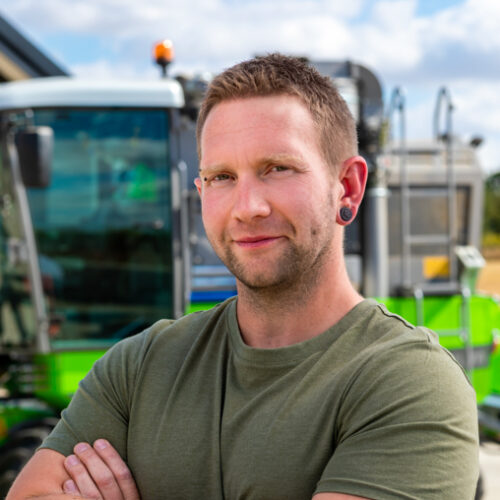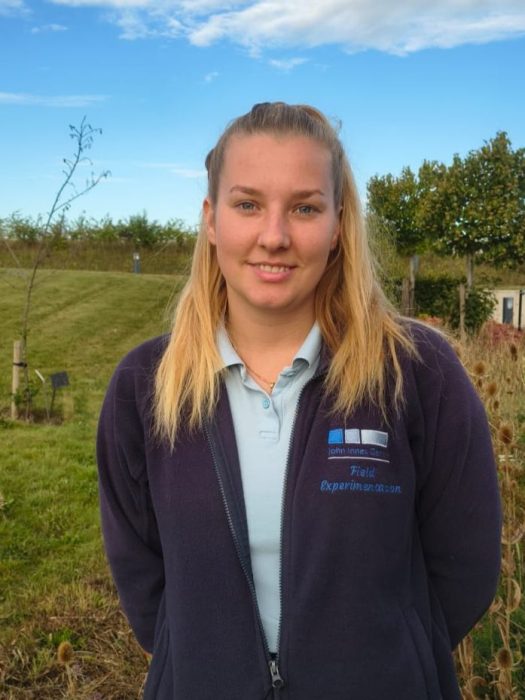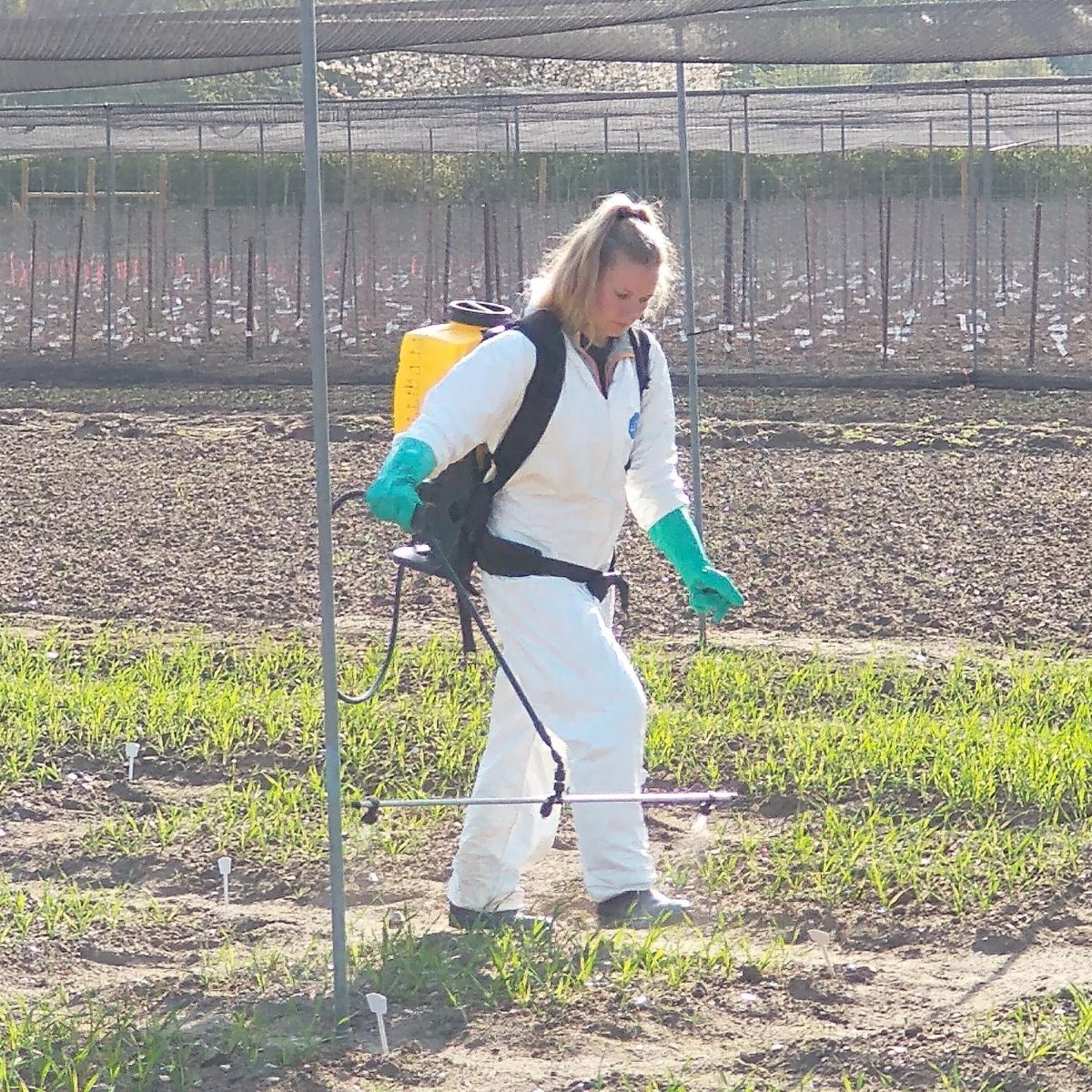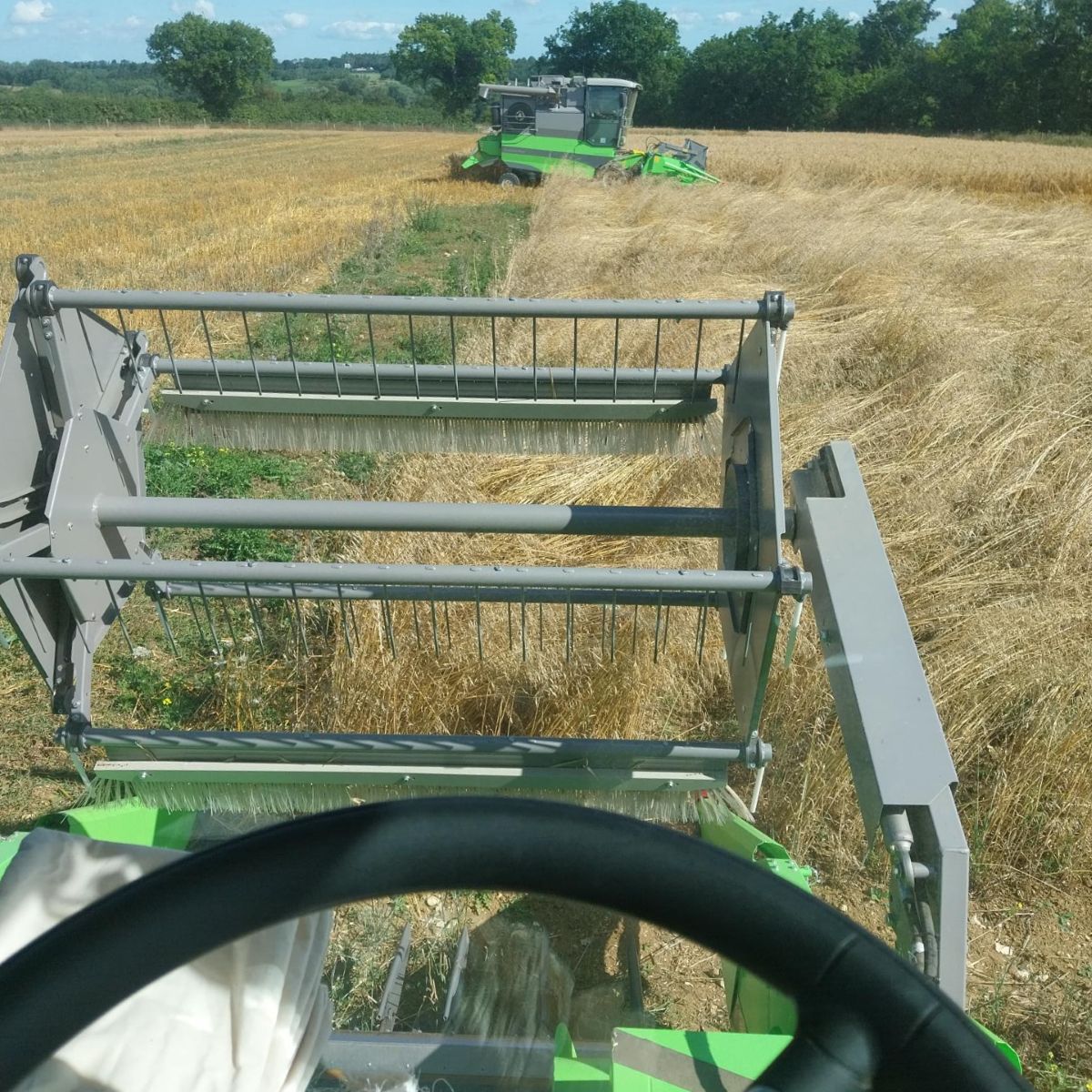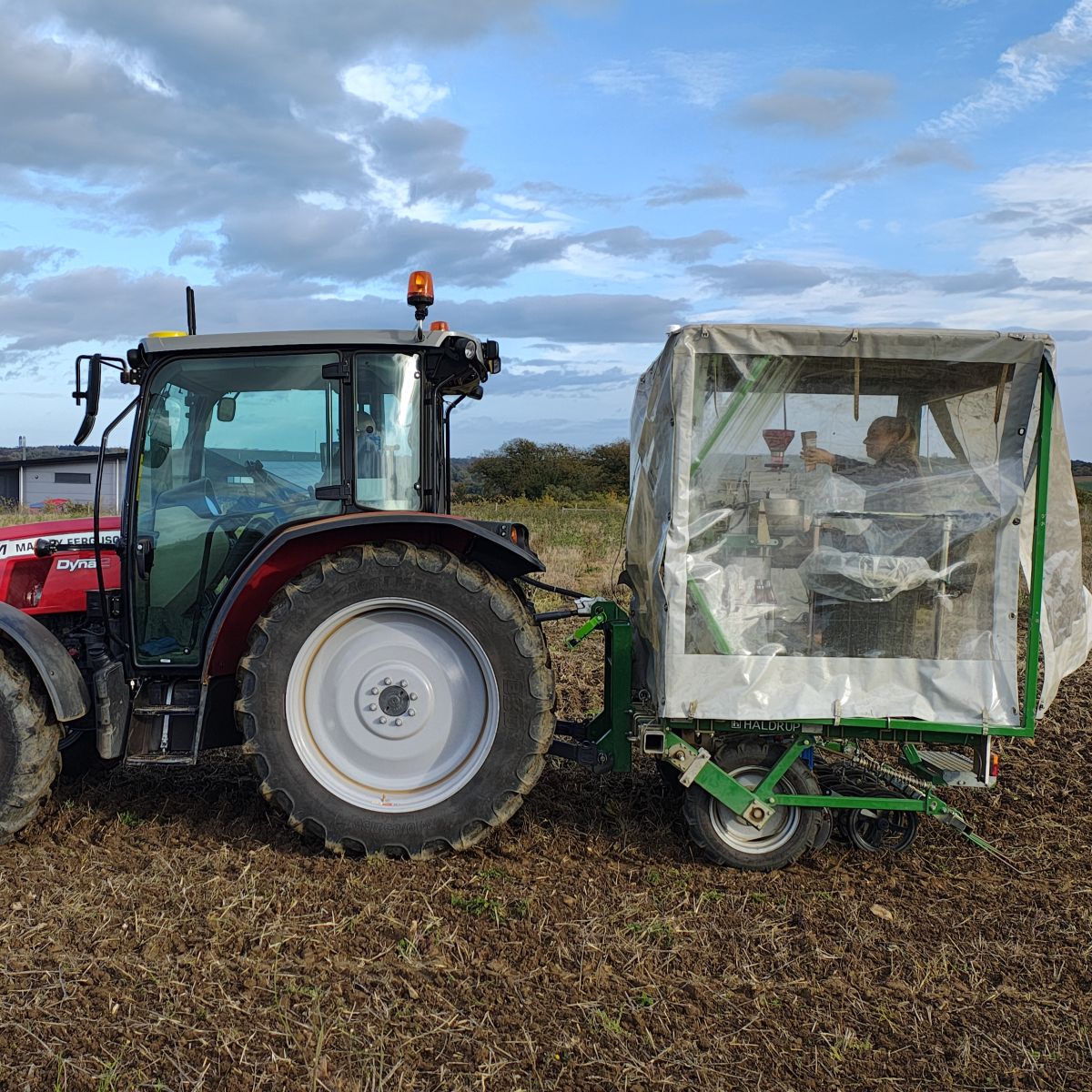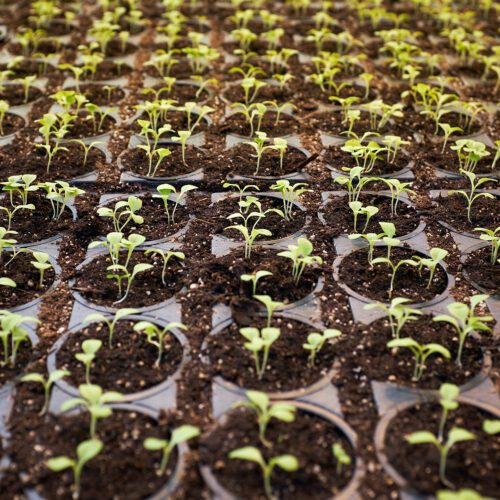I work with scientists who are trying to understand genetic differences in crops, and how these change the plant. Seeds are tested under controlled environmental conditions in our laboratory and then planted at our research farm, which is where my job begins. I plant the seeds, grow the plants and collect data for the scientists to analyse, to determine how the test plants have performed in a real farm environment.
The scientists may want to see how a new variety of wheat grows in a drought, so I’ll plant test batches, grow them under different conditions and eventually harvest them. I make observations and collect data on things like the height, health and even protein content of the plants. All this information is used to improve the seeds that farmers will use in the future.
